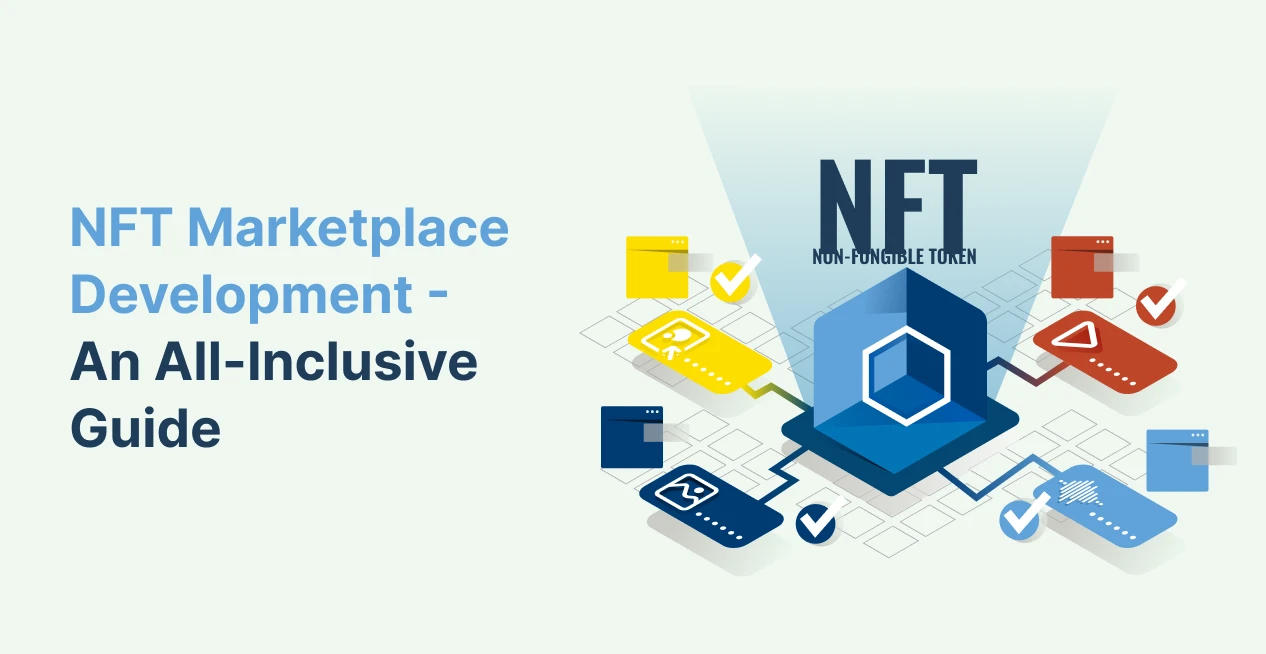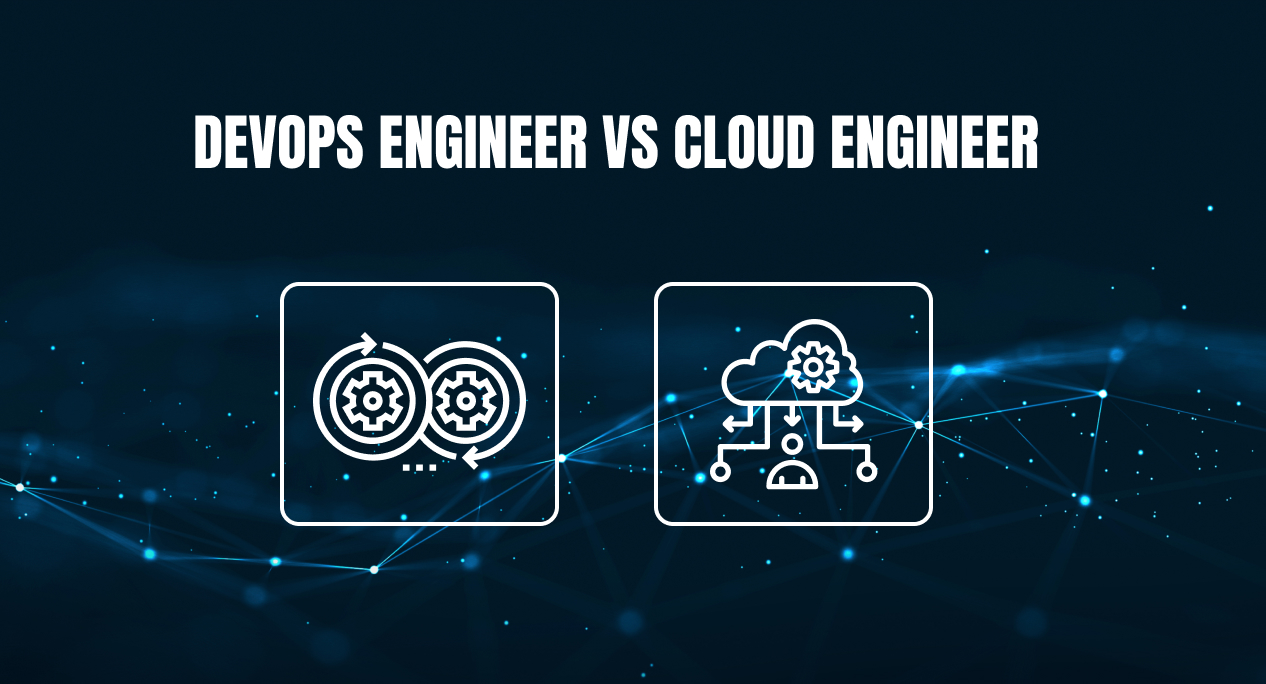Despite sounding similar, DevOps Engineers and Cloud Engineers are very different jobs. There’s some overlap between DevOps Engineer and Cloud Engineer, but they’re separate jobs for a reason. The term DevOps refers to Development and Operations. In cloud engineering, “cloud” refers to the cloud-based architecture many modern companies use.
The two most frequently mentioned methods for helping businesses undergo the transformation they need are DevOps and Cloud Computing. However, cloud computing is all about technology and services, whereas DevOps is all about the process and performance enhancement. It’s important to comprehend how DevOps and Cloud complement one another because their relationship is unclear.
Hence, let’s explore the differences between DevOps Engineers and Cloud Engineers. First, let’s understand what DevOps and Cloud Engineers are.
What is a DevOps Engineer?
Development Operations (DevOps) engineers work with software and operations teams in a company to ensure that software is deployed efficiently. The DevOps engineering team uses its technical expertise and project management skills to improve software deployment through iteration, feedback, and faster deployment.
The primary duties of a DevOps engineer include creating and automating the infrastructure necessary for the testing, development, and deployment of the programme for end users. They essentially set up an effective software production line. Therefore, it is crucial to have a thorough understanding of the software lifecycle.
Different Job roles under DevOps:
- Software Engineer
- Software Tester
- Software Developer
- Security Engineer
- Quality Assurance
- Automation Expert
What is a Cloud Engineer?
An IT expert who builds and manages cloud infrastructure is known as a Cloud Engineer. More specialized duties for cloud engineers include cloud architecting (designing cloud solutions for businesses), development (writing code for the cloud), and administration (managing cloud networks).
A subset of DevOps Engineering, the cloud engineer’s role involves designing, building, testing, deploying, maintaining, monitoring, and supporting software in collaboration with developers, product managers, and operations teams. A cloud computing specialist may specialize in any aspect of cloud computing, including infrastructure, platform, application, or developer tools.
Different Job roles under cloud computing:
- Cloud Developer
- Cloud Architect
- Cloud Security Engineer
- Cloud Network Engineer etc.
DevOps Engineer vs Cloud Engineer: Comparison Table
In comparison to DevOps and Cloud Engineer, they are both important to their respective industries. Both DevOps and Cloud Engineer have several career prospects within the industry, so you should prioritize your interests accordingly. These are some differences between a DevOps Engineer and a Cloud Engineer that everyone should be aware of.
|
DevOps Engineer |
Cloud Engineer |
| A DevOps Engineer enables faster software development by bridging development, engineering, and management. | Cloud Engineers create and maintain cloud infrastructure and platforms for businesses and individuals. |
| DevOps Engineers concentrate more on effectively automating the software development and launch process. From setting up the software for end-user deployment to automating various internal business procedures. | Cloud Engineers generally concentrate on managing the company’s cloud infrastructure, including selecting the best service options and controlling expenditures. They also guarantee security and proper scaling of the infrastructure. |
| DevOps Engineers are recognised for their skills with a broad range of tools and combined years of expertise. They deal with tools and technologies beyond the cloud platform, therefore their skill set is significantly more diverse. | The value of Cloud Engineers depends on how well-versed they are in their particular cloud platform. So obtaining as many cloud certifications as you can is one method to improve your knowledge and reputation as a Cloud Engineer. |
| It is a superset of Cloud Engineering. | It is a subset of DevOps Engineers. |
| DevOps Engineers use tools like Azure and AWS. These tools help them to build scalable software and deploy them across various regions and data centers. | Cloud Engineers use tools like Kubernetes, Docker, and Jenkins. These tools assist them in automating deployment processes and monitoring software. |
| DevOps Engineers’ salary is higher than Cloud Engineers’. | Cloud Engineer’s salary is comparatively less than that of a DevOps Engineer. |
| Agile methodology is strictly followed. | Agile methodology is partially followed. |
| A DevOps Engineer’s understanding of the software lifecycle goes beyond a Cloud Engineer’s understanding. | In comparison to DevOps Engineers, Cloud Engineers have less understanding of the software lifecycle. |
| A DevOps Engineer’s purpose is to make the automation process effective. | While a Cloud Engineer’s purpose is to create brainstorming cloud solutions. |
Conclusion
In the DevOps Engineer vs Cloud Engineer comparison, one thing is clear: both provide vast amounts of value to any organization they work for. Understanding the DevOps and Cloud Engineering processes, technologies, and techniques can help you decide which stream is the best fit for you. Although there are many commonalities between both of these fields, there are little differences that can have a big impact on how you choose to pursue a career.
Both of these are equally important in the market, whether it is for a desirable employment role, certification, or professional advancement. So, the greatest job to choose is cloud engineer if you’re interested in cloud or computer coding. Additionally, if you have development-related abilities, consider beginning a career in DevOps.
Want to get started with Cloud Devops Engineering?
With the help of seasoned Cloud DevOps engineers from OpenXcell, revamp your approach to software development, delivery, and deployment. Our experts offer a variety of DevOps services, from DevOps Consulting to implementation, to help you quickly scale up your organization. At the same time, using OpenXcell’s Cloud Management Services will help you streamline and simplify your business processes so that you can focus on your main corporate goal.
COMMENT
No Comments found.
DETAILED INDUSTRY GUIDES
Software Development - Step by step guide for 2024 and
beyond | OpenXcell
Learn everything about Software Development, its types, methodologies, process outsourcing with our complete guide to software development.
Headless CMS - The complete guide for 2024 | OpenXcell
Learn everything about Headless CMS along with CMS, its types, pros & cons as well as use cases, and real-life examples in a complete guide.
Mobile App Development - Step by step guide for 2024 and beyond | OpenXcell
Building your perfect app requires planning and effort. This guide is a compilation of best mobile app development resources across the web.
DevOps - A complete roadmap for software transformation | OpenXcell
What is DevOps? A combination of cultural philosophy, practices, and tools that integrate and automate between software development and the IT operations team.
GET QUOTE
MORE WRITE-UPS
Looking for a healthcare professional? Try Teladoc. Need help tracking your daily medicine dose manually? Well, Medisafe is the answer for you. Want to take better care of your physical…
Read more...
Building a web project and confused between Nuxt vs Next, what should you choose? Here, we will give you an overview of features, pros, cons, differences, similarities, and more to help…
Read more...
Synopsis NFT marketplace has become the new buzzword, and NFT marketplace development is the in-trend service. But why? The answer is that it opens up new opportunities for many to…
Read more...







